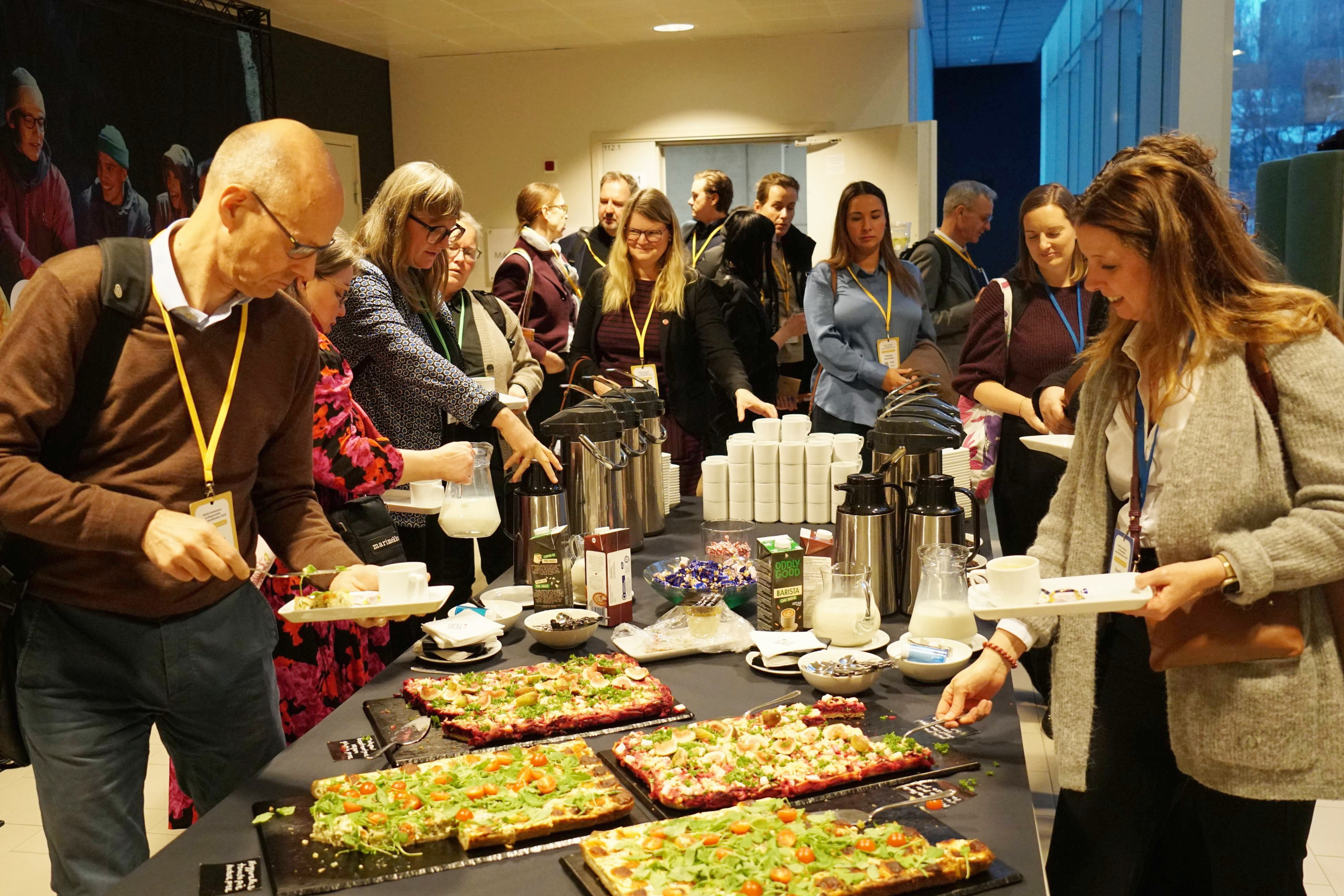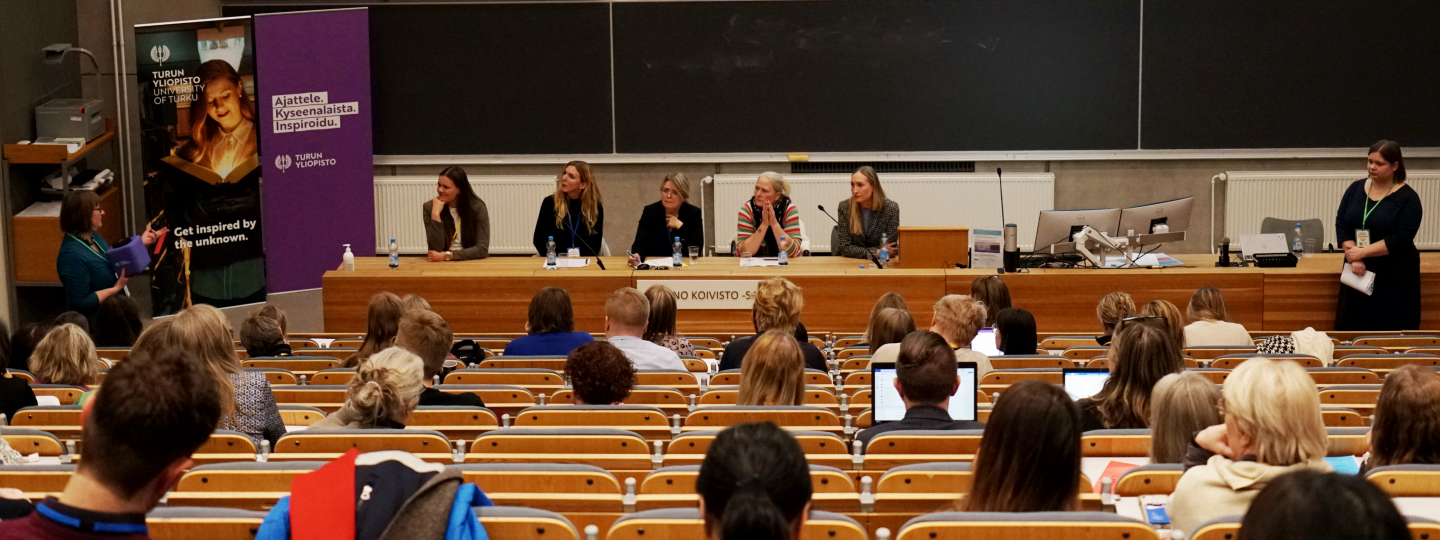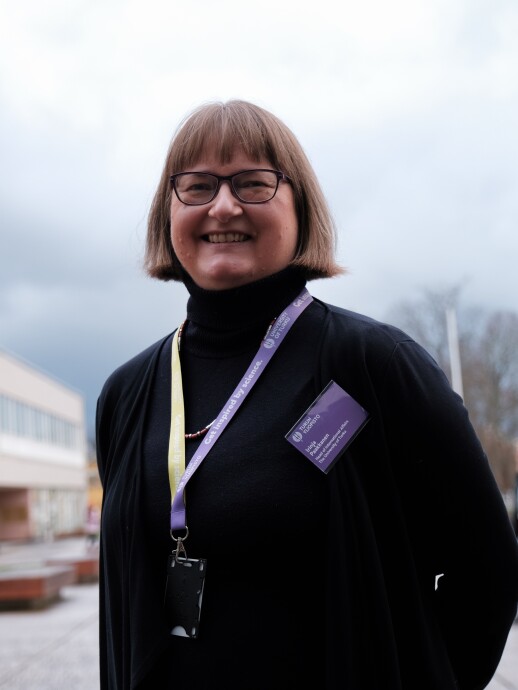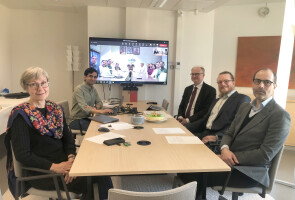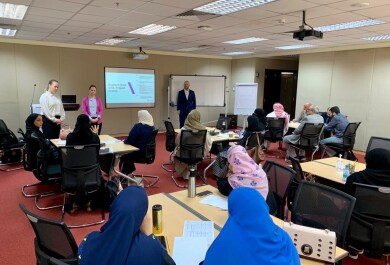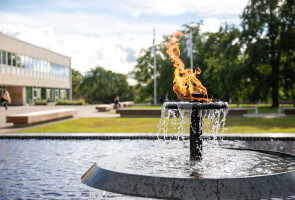The conference on responsible internationalisation, organised by the Nordic Association of University Administrators, attracted participants from various higher education institutions in the Nordic region to the University of Turku.
In recent years, the collaboration among international academic entities has become more and more interlinked with the intricacies of political, economic, and social contexts. This heightened interdependence raises concerns and questions about academic collaboration within higher education institutions, as well as in the spheres of talent recruitment and admissions. Within Nordic universities, the assessment of the universities’ standing in terms of academic freedom, corruption, legislation, political systems, as well as the influence of digital development has become pertinent.
The Nordic Association of University Administrators (NUAS) benchlearning conference delved into the prevailing trends, topics and dimensions in the field of responsible internationalisation in academic settings. The conference, which was organised by NUAS working groups Internationalisation and International Admission and Recognition of Qualifications, attracted 110 registered participants from all around the Nordic region to the University of Turku. The participants were eager to share their experiences and exchange best practices on how to manage responsible internationalisation in academic environments where rapidly changing world situations must be carefully considered.
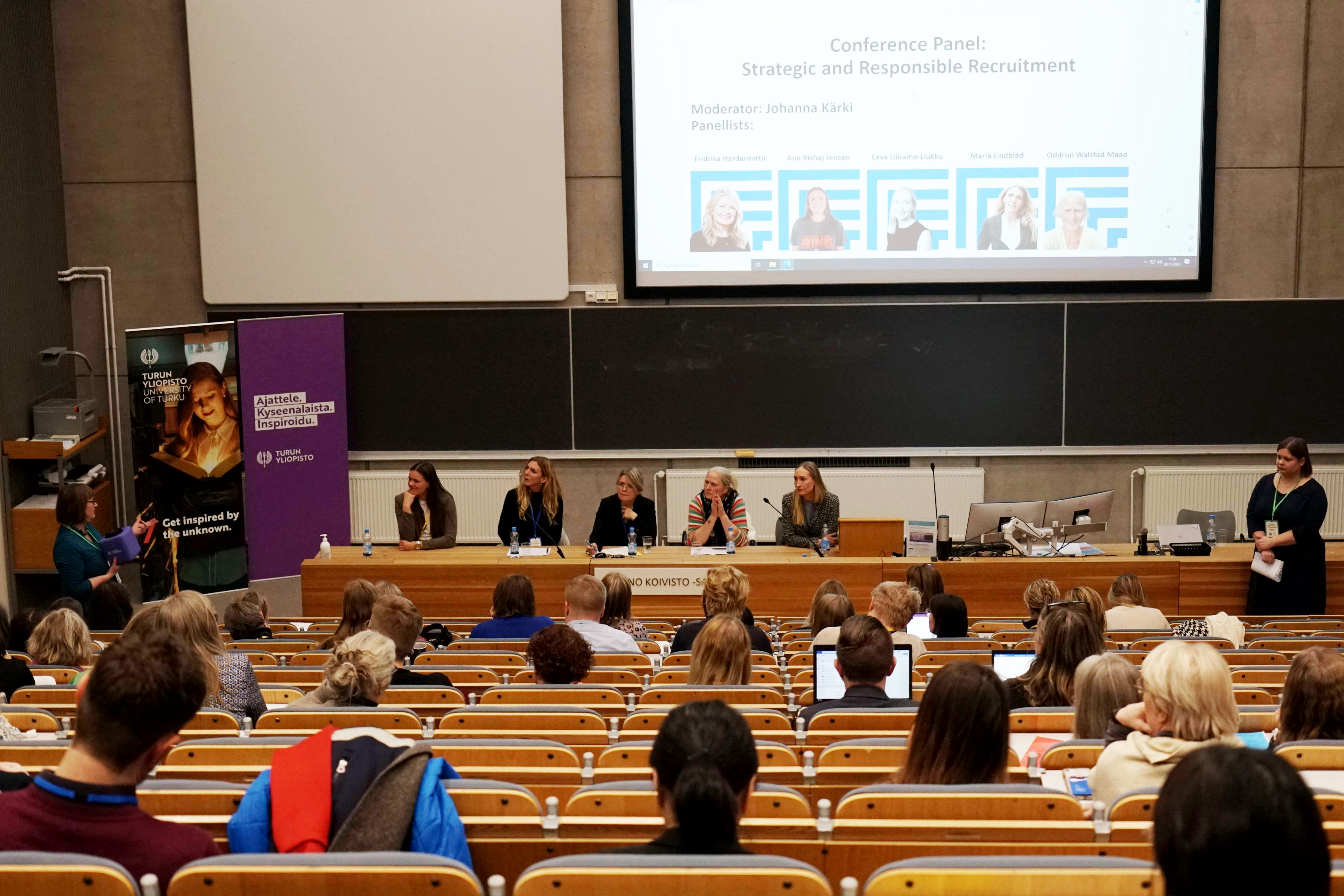
The many aspects of responsible internationalisation
As mentioned by the University of Turku Rector Jukka Kola in his opening speech, the topic of the conference is very relevant especially for universities as these are the institutions that should be leading the way in responsible internationalisation. According to Rector Kola, in a world that is increasingly volatile, uncertain, complex and ambiguous, responsibility is something that is needed more and more. At the same time, the topic of responsible internationalisation is very versatile and multidimensional, encompassing various aspects and functions.
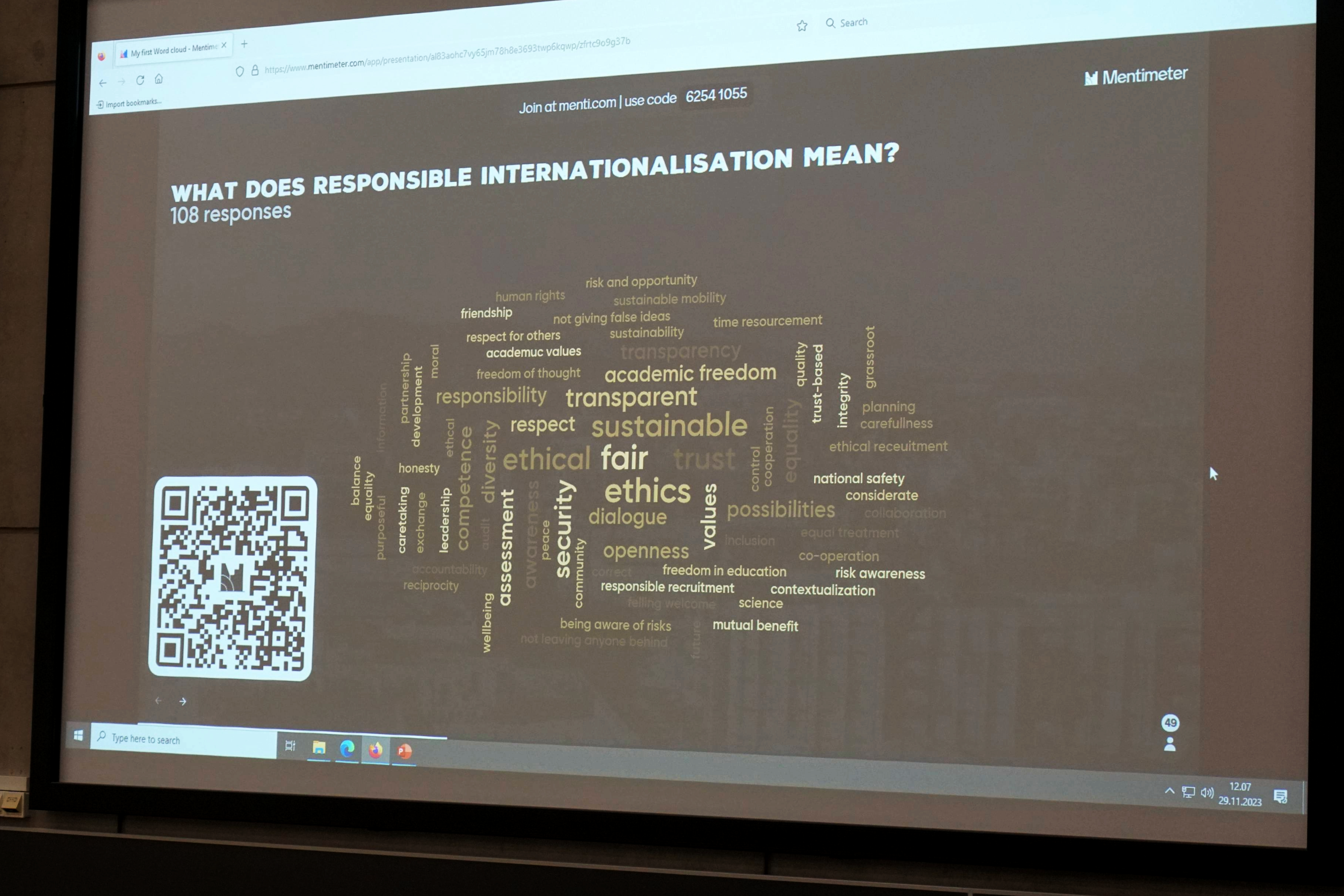
The diversity and multidimensionality of the topic became clear from the discussions of the conference. During the conference days, the topic was explored from various viewpoints, ranging from discussion on the current trends in internationalisation of higher education, the complex challenges concerning higher education of refugees and victims of war or other hostilities, and the ways to approach and assess academic collaboration with countries that have a complex geopolitical profile.
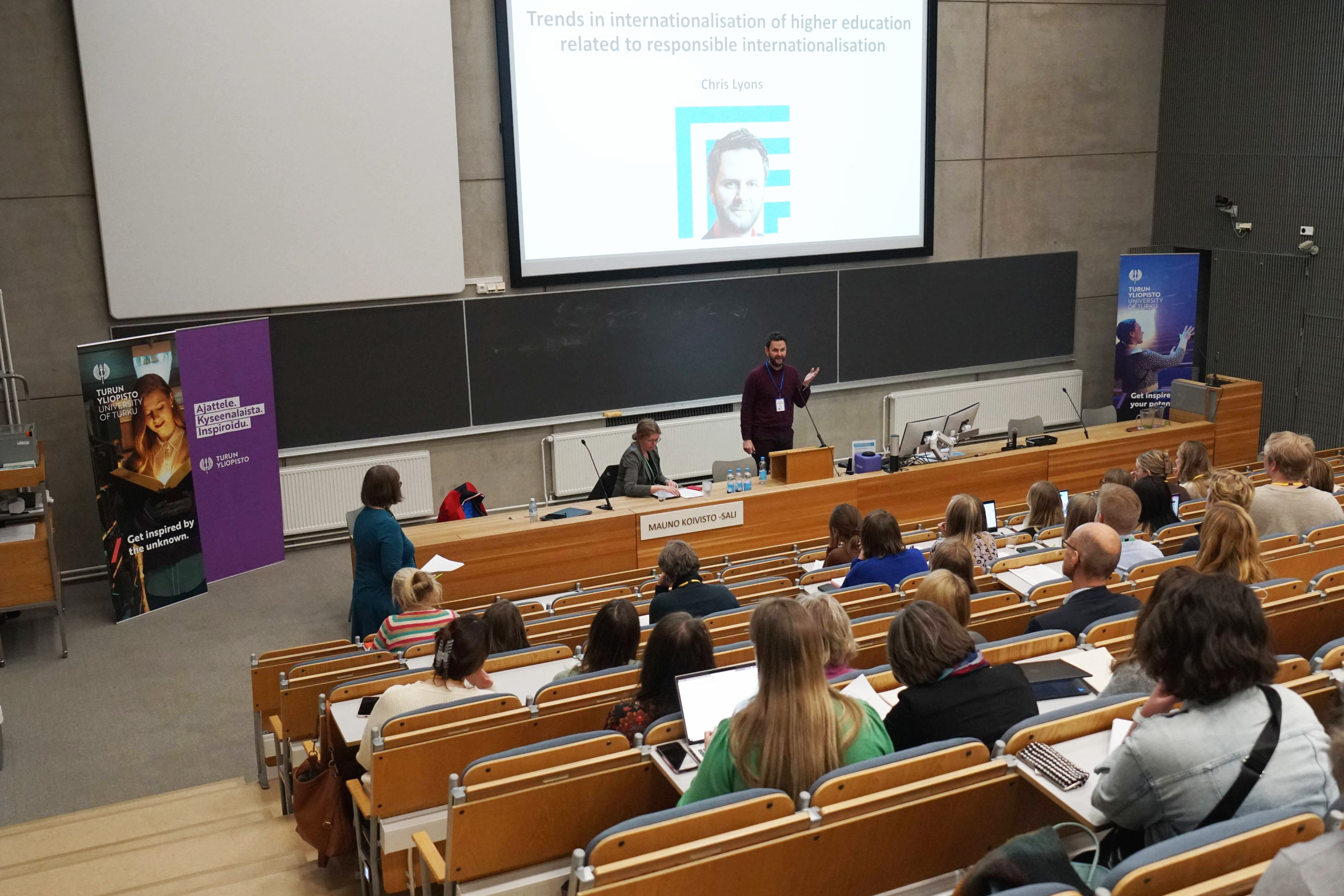
Furthermore, the conference discussions focused on very tangible and concrete issues faced by many university administrators today. These included topics such as the different ways to handle strategic and responsible international student recruitment, the approaches to digital credential verification, talent retention practices, and the ways to ensure the availability of high-quality education and relevant support services for international students.

Balancing the risks
Although the discussions of the conference focused mainly on the challenges faced and solutions created by university administrators in their day-to-day work, many speakers and participants highlighted the need to also recognise the voice of international students and researchers. In other words, while the speakers and participants admitted that responsible internationalisation is an issue that needs to be addressed in university administration, those that are directly affected by the processes and decisions that are being made at administrative levels should always be included and heard in the discussions.
The need to recognise individuals was discussed especially in the context of those regions and countries which are seen as problematic and risky in terms of international collaboration. While political situations or other conflicts may limit or even prohibit collaboration between different countries and regions, many of the discussions of the conference emphasised the need for solidarity towards individual students and researchers. This perspective was brought up by speakers such as Doctoral and Project Researcher Zahra Jahanshah Rad from the University of Turku who invited the participants to think about ways to distinguish between governments and individuals from problematic countries.
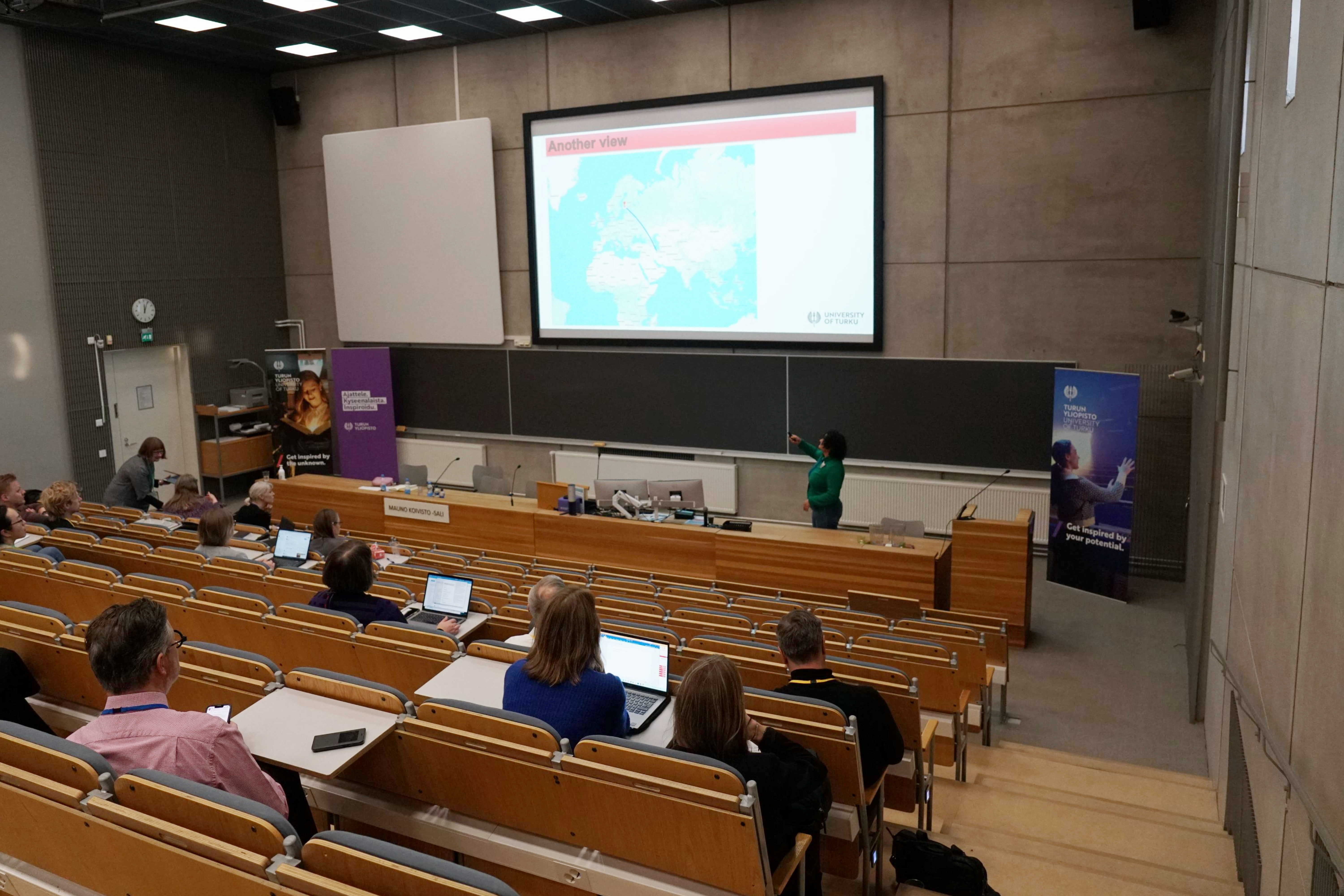
The challenges connected to responsible internationalisation were accurately summarised by Professor Emeritus Ole Petter Ottersen who gave a keynote presentation on the last day of the conference. Professor Emeritus Ottersen discussed the complexities of responsible internationalisation and the need for competence and moral compass when dealing with problematic regions and countries. He also reminded the audience that the risks of international collaboration must always be balanced with the risks of non-nollaboration.

